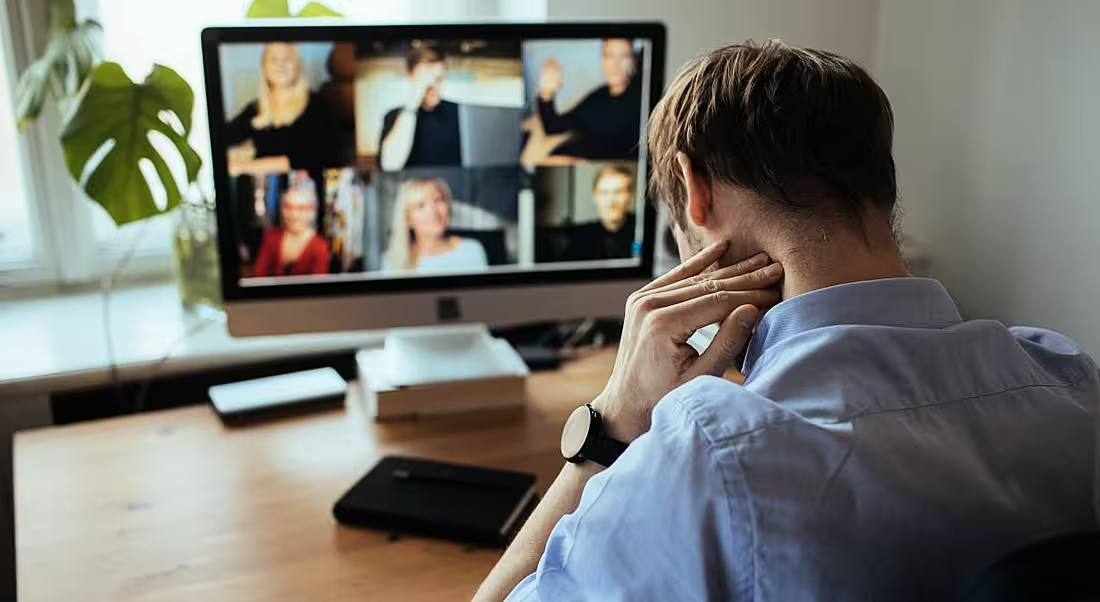Researchers found that new employees and women were particularly fatigued after appearing on camera in virtual meetings.
What does your work expect of you in online virtual meetings? Do you dress as if you were in the office? Are you required to keep your camera on and to look engaged throughout? How do you feel afterward?
A new research study published in the Journal of Applied Psychology was interested in finding out how camera use influenced levels of fatigue. The researchers particularly wanted to know which factors played a role in feelings of tiredness after appearing on camera in meetings throughout the day.
Modern virtual meetings
Psychological theories of self-presentation and past research would both predict that gender and organisational tenure are factors in how tiring meetings are when the camera is turned on. Even though the pandemic has resulted in fewer meeting hours in general, the researchers suspected this wasn’t the important aspect.
“There’s always this assumption that if you have your camera on during meetings, you are going to be more engaged,” said Dr Allison Gabriel, the lead researcher on the study.
“But there’s also a lot of self-presentation pressure associated with being on camera. Having a professional background and looking ready, or keeping children out of the room are among some of the pressures.”
‘At the end of the day, we want employees to feel autonomous and supported at work in order to be at their best’
–DR ALLISON GABRIEL
To find out more, Gabriel and her colleagues conducted a four-week experiment involving 103 participants across 19 workdays. These employees were recruited from BroadPath, an American healthcare sector company with several thousand remote workers. The participants were then split into two groups for the observational research and would spend an average of three hours a day in meetings for the duration of the study.
The groups were asked to leave their camera on or off to compare their recorded levels of fatigue at the end of the day. After two weeks, the groups then switched conditions. In this way, the research tried to account for the different demands of different jobs. This resulted in 1,400 observations of perceived fatigue which was linked back to employee information from HR data.
Appearing your best, feeling your worst
Once all the data were gathered, the psychologists found camera use was indeed fatiguing and this exhaustion wasn’t attributable to the number of meetings on that particular day. What’s more, employees who were exhausted engaged less in meetings and spoke less. Finally, the researchers found that women and newer employees were even more exhausted after being required to use a camera.
While the research didn’t interview the participants or use qualitative methods to find out why this may have been the case, it did line up with Gabriel’s prior suspicions as to who would be most affected by a camera mandate. She highlighted the importance of this finding in company organisation and in future research.
“Employees who tend to be more vulnerable in terms of their social position in the workplace, such as women and newer, less tenured employees, have a heightened feeling of fatigue when they must keep cameras on during meetings,” said Gabriel.
“Women often feel the pressure to be effortlessly perfect or have a greater likelihood of childcare interruptions, and newer employees feel like they must be on camera and participate in order to show productiveness.”
Gabriel suggested that requiring camera use during virtual meetings may not be the most beneficial solution. Instead, she says that employees should be given a choice as to their camera use.
“At the end of the day, we want employees to feel autonomous and supported at work in order to be at their best. Having autonomy over using the camera is another step in that direction,” concluded Gabriel.




